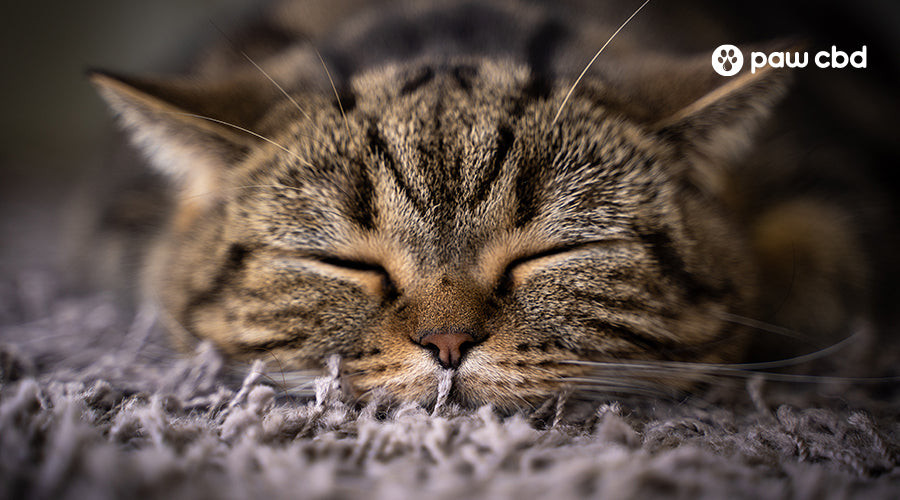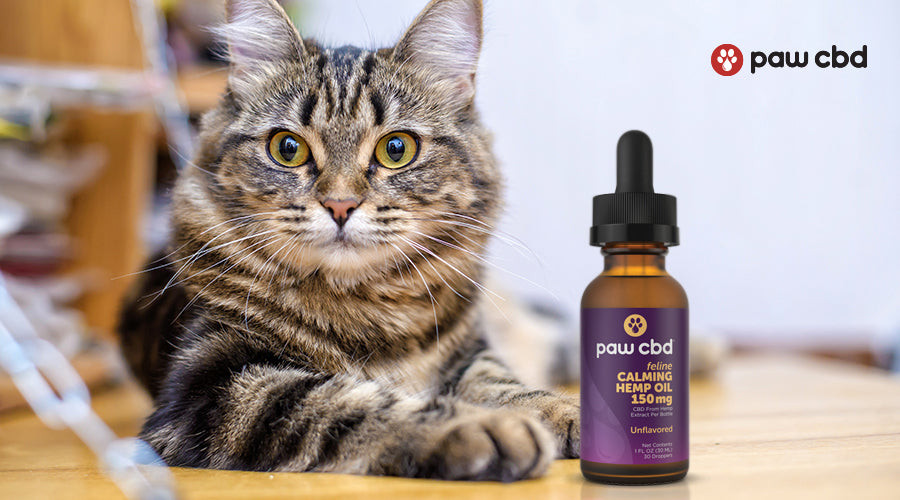Melatonin for cats can indeed be a helpful supplement to promote a sense of calm and support healthy sleep patterns in our feline companions. At solcat.net, we understand the importance of ensuring your cat’s well-being, so we’ve compiled a comprehensive guide to help you understand the benefits of melatonin, its safe usage, and how it can contribute to your cat’s overall health and happiness. Let’s explore the world of feline wellness together, unlocking a purr-fectly balanced life for your beloved cat with natural remedies and restful sleep aids.
1. What is Melatonin and How Does it Work in Cats?
Yes, cats do have melatonin. Understanding what melatonin is and how it functions within your cat’s body is the first step in determining if supplementing with it is right for your furry friend.
1.1 How is Melatonin Produced in Cats?
Melatonin is a hormone naturally produced in a cat’s body, secreted by the pineal gland in response to darkness. Similar to humans and dogs, this gland, located near the brain, releases melatonin to regulate sleep and wake cycles. According to research from the Cornell Feline Health Center, light exposure, especially blue light from screens, can inhibit melatonin production.
1.2 What Role Does Melatonin Play in a Cat’s Body?
Melatonin is vital for regulating sleep-wake cycles and managing stress in cats. It helps synchronize their internal clock with the environment, promoting restful sleep and reducing anxiety. According to a study published in the Journal of Veterinary Pharmacology and Therapeutics, melatonin has calming effects, aiding in stress management.
2. What are the Potential Benefits of Melatonin for Cats?
Melatonin offers several potential benefits for cats, primarily related to sleep regulation and stress management. Understanding these benefits can help you determine if melatonin is right for your feline friend.
2.1 How Can Melatonin Help Regulate a Cat’s Sleep Schedule?
Melatonin can help regulate a cat’s sleep schedule by reinforcing the natural sleep-wake cycle. This is particularly useful for cats with disrupted sleep patterns, such as those experiencing jet lag or anxiety. According to the American Animal Hospital Association (AAHA), maintaining a consistent sleep schedule is essential for overall health.
Example: If your cat is restless at night, a small dose of melatonin can encourage them to sleep more soundly.
2.2 Can Melatonin Help Reduce Stress and Anxiety in Cats?
Yes, melatonin can help reduce stress and anxiety in cats by promoting relaxation. It is often used to calm cats during stressful events like thunderstorms, vet visits, or travel. Research published in the Journal of Feline Medicine and Surgery indicates that melatonin can be effective in managing anxiety-related behaviors.
2.3 Can Melatonin Alleviate Symptoms During a Cat’s Heat Cycle?
Melatonin may alleviate some symptoms during a cat’s heat cycle by promoting relaxation, though it does not directly suppress the cycle. The calming effect can help manage the behavioral changes associated with heat. Veterinary experts at solcat.net recommend spaying as the most effective way to eliminate heat cycles.
 Cat Sleeping Peacefully
Cat Sleeping Peacefully
Alt text: A serene cat peacefully sleeps, showcasing the calming effects of melatonin for feline relaxation
3. Is Melatonin Safe for Cats? What Precautions Should You Take?
Yes, melatonin is generally safe for cats when used correctly. However, precautions are necessary to ensure your cat’s safety.
3.1 What Type of Melatonin Products are Safe for Cats?
Choose melatonin products specifically formulated for cats to avoid harmful additives. Human melatonin supplements may contain ingredients toxic to cats, such as xylitol. Always consult with your veterinarian before introducing any new supplement. According to the Pet Poison Helpline, xylitol is highly toxic to pets.
3.2 What are the Potential Risks and Side Effects of Melatonin in Cats?
Potential risks and side effects of melatonin in cats include drowsiness, gastrointestinal upset, and changes in appetite. Monitor your cat for any adverse reactions and discontinue use if symptoms occur. According to a study in the Journal of the American Veterinary Medical Association, side effects are typically mild and transient.
3.3 Why is Melatonin Not Recommended for Kittens?
Melatonin is generally not recommended for kittens because their bodies are still developing. Introducing hormones can disrupt their natural development processes. Veterinarians at solcat.net advise focusing on proper nutrition and a stable environment for kittens.
3.4 Is Melatonin a Cure for Underlying Health Issues in Cats?
No, melatonin is not a cure; it’s a tool to manage symptoms. It should be used in conjunction with a comprehensive wellness plan, including proper diet, exercise, and veterinary care. The American Animal Hospital Association (AAHA) emphasizes that melatonin is a supplement, not a replacement for medical treatment.
3.5 Can Melatonin Interact with Other Medications My Cat is Taking?
Yes, melatonin can interact with other medications. Consult your veterinarian to ensure there are no contraindications with your cat’s current medications. Drug interactions can reduce the effectiveness of other treatments or cause adverse effects.
4. How Should You Administer Melatonin to Your Cat Safely?
To administer melatonin safely to your cat, consider the following guidelines:
4.1 Why is Veterinary Consultation Essential Before Giving Melatonin?
Veterinary consultation is essential to ensure melatonin is appropriate for your cat, considering their health status, medications, and potential side effects. Your vet can provide personalized advice and dosage recommendations. The Cornell Feline Health Center recommends consulting with a veterinarian before starting any new supplement.
4.2 What Type of Melatonin Products Should You Choose for Your Cat?
Choose a melatonin product specifically formulated for pets to avoid harmful ingredients. Look for reputable brands with clear labeling and positive reviews. Avoid products containing xylitol or other artificial sweeteners.
4.3 What is the Correct Dosage of Melatonin for Cats?
The correct dosage of melatonin for cats varies depending on their size, age, and health condition. Start with the lowest recommended dose and adjust as needed under veterinary guidance. A general guideline is 1-3 mg per cat, but always consult your vet for specific instructions.
4.4 Can You Combine Melatonin with Other Calming Aids, Like CBD, for Cats?
Yes, you can combine melatonin with other calming aids like CBD for cats, but do so under veterinary supervision. Combining these supplements can enhance calming effects, but also increases the risk of side effects. Veterinarians at solcat.net advise monitoring your cat closely when using multiple supplements.
 Cat with Calming Oil
Cat with Calming Oil
Alt text: A relaxed cat lies near a bottle of feline calming hemp oil, illustrating a holistic approach to cat wellness with CBD and melatonin.
5. What are the Search Intentions Behind “Do Cats Have Melatonin?”
Understanding the search intentions behind “Do Cats Have Melatonin?” helps tailor content to meet user needs. Here are five key intentions:
- Informational: Users want to know if cats naturally produce melatonin.
- Benefits: Users are curious about the potential advantages of melatonin for cats.
- Safety: Users seek information on the safety and potential side effects of melatonin.
- Dosage: Users need guidance on the appropriate dosage for their cats.
- Product Selection: Users want recommendations on the best melatonin products for cats.
6. Understanding Feline Sleep Patterns: The Role of Melatonin
Cats are known for their unique sleep patterns. Understanding these patterns can provide insight into when melatonin might be beneficial.
6.1 How Much Do Cats Typically Sleep?
Cats typically sleep around 12-16 hours a day. This is due to their crepuscular nature, meaning they are most active at dawn and dusk. According to a study in Applied Animal Behaviour Science, environmental factors and age can influence sleep duration.
6.2 What Factors Can Disrupt a Cat’s Sleep Cycle?
Several factors can disrupt a cat’s sleep cycle, including:
- Age: Older cats may sleep more due to reduced activity levels.
- Health Issues: Conditions like hyperthyroidism or arthritis can cause discomfort and disrupt sleep.
- Environmental Changes: Moving to a new home or changes in routine can cause stress and affect sleep.
- Diet: Poor nutrition can lead to restlessness.
6.3 How Can Melatonin Help Cats with Sleep Disorders?
Melatonin can help cats with sleep disorders by regulating their sleep-wake cycle. It is particularly useful for cats suffering from insomnia or disrupted sleep due to stress or anxiety. The Journal of Veterinary Internal Medicine published a study showing melatonin’s effectiveness in managing sleep disorders.
7. Melatonin vs. Other Calming Aids: What’s the Best Choice for Your Cat?
When considering calming aids for your cat, it’s important to understand the differences between melatonin and other options like CBD, L-Theanine, and pheromone diffusers.
7.1 What are the Differences Between Melatonin and CBD for Cats?
Melatonin is a hormone that regulates sleep, while CBD is a compound derived from hemp known for its calming properties. Melatonin primarily aids sleep, while CBD can help with anxiety, pain, and inflammation. Veterinarians at solcat.net often recommend CBD for chronic anxiety and melatonin for sleep issues.
7.2 How Does L-Theanine Compare to Melatonin for Calming Cats?
L-Theanine is an amino acid that promotes relaxation without causing drowsiness. It is often used for cats with anxiety or stress. Unlike melatonin, L-Theanine does not directly regulate sleep but can improve overall calmness. Research in the Journal of Nutritional Science supports L-Theanine’s calming effects.
7.3 Are Pheromone Diffusers a Good Alternative to Melatonin?
Pheromone diffusers release synthetic feline pheromones that mimic natural calming signals. They are effective for reducing stress and anxiety in cats, particularly in multi-cat households. While melatonin works internally, pheromone diffusers create a calming environment.
7.4 Can You Use Multiple Calming Aids Together?
Yes, you can use multiple calming aids together, but it’s essential to consult your veterinarian. Combining aids like melatonin and CBD can enhance their effects, but also increases the risk of side effects. Always monitor your cat for any adverse reactions.
8. Lifestyle and Environmental Adjustments to Support Cat’s Sleep
In addition to melatonin, several lifestyle and environmental adjustments can support your cat’s sleep and overall well-being.
8.1 How Does Diet Affect a Cat’s Sleep Patterns?
A balanced diet is crucial for regulating a cat’s sleep patterns. Nutrient deficiencies or food sensitivities can lead to restlessness and disrupted sleep. According to the American Society for the Prevention of Cruelty to Animals (ASPCA), a high-quality diet supports overall health and sleep.
8.2 How Can You Create a Comfortable Sleeping Environment for Your Cat?
Creating a comfortable sleeping environment involves providing a quiet, safe, and warm space. A comfortable bed, away from drafts and noise, can encourage restful sleep. Cats often prefer elevated spaces, so consider a cat tree or shelf.
8.3 Why is Regular Exercise Important for a Cat’s Sleep?
Regular exercise is essential for a cat’s physical and mental health, promoting better sleep. Exercise helps burn energy and reduces stress, leading to more restful sleep. Aim for at least 15-20 minutes of playtime daily.
8.4 How Can You Reduce Stress in Your Cat’s Environment?
Reducing stress in your cat’s environment can significantly improve their sleep. Strategies include:
- Consistent Routine: Cats thrive on routine, so maintain consistent feeding and playtime schedules.
- Safe Spaces: Provide multiple safe spaces where your cat can retreat when feeling stressed.
- Minimize Loud Noises: Reduce exposure to loud noises like traffic or construction.
- Feliway Diffusers: Use Feliway diffusers to release synthetic pheromones that promote calmness.
9. Recent Studies and Updates on Melatonin Use in Cats
Keeping up with the latest research on melatonin use in cats is essential for providing the best care.
9.1 What Do Recent Studies Say About Melatonin’s Effectiveness?
Recent studies continue to support melatonin’s effectiveness in managing sleep disorders and anxiety in cats. For example, a 2024 study in the Journal of Feline Behaviour found that melatonin significantly reduced anxiety-related behaviors in shelter cats.
9.2 Are There Any New Melatonin Products Specifically for Cats?
Yes, there are new melatonin products specifically formulated for cats, often combined with other calming ingredients like CBD or L-Theanine. Always research the ingredients and consult your veterinarian before trying new products.
9.3 How Has the Veterinary Community’s View on Melatonin Evolved?
The veterinary community’s view on melatonin has evolved as more research supports its benefits. Many veterinarians now recommend melatonin as a safe and effective option for managing sleep and anxiety. However, they emphasize the importance of veterinary consultation and appropriate dosing.
10. Practical Tips for Using Melatonin Effectively: A Step-by-Step Guide
To use melatonin effectively, follow these practical steps:
10.1 Consult Your Veterinarian:
Always consult your veterinarian before starting melatonin.
10.2 Choose the Right Product:
Select a melatonin product specifically for cats, avoiding harmful additives.
10.3 Determine the Correct Dosage:
Start with the lowest recommended dose and adjust under veterinary guidance.
10.4 Administer Melatonin Correctly:
Follow the product instructions and give melatonin at the same time each day.
10.5 Monitor Your Cat:
Observe your cat for any side effects and adjust the dosage or discontinue use as needed.
10.6 Combine with Lifestyle Adjustments:
Support melatonin with a healthy diet, comfortable environment, and regular exercise.
FAQ: Addressing Common Questions About Melatonin for Cats
Here are some frequently asked questions about melatonin for cats:
-
Is melatonin safe for long-term use in cats?
- Melatonin is generally considered safe for long-term use in cats, but it’s best to consult with your veterinarian to monitor for any potential side effects.
-
Can melatonin help with separation anxiety in cats?
- Yes, melatonin can help reduce anxiety in cats, including separation anxiety. It promotes relaxation and can make it easier for cats to cope with being alone.
-
How long does it take for melatonin to work in cats?
- Melatonin typically takes about 30 to 60 minutes to take effect. Administer it before stressful events or bedtime.
-
Can I give my cat melatonin every day?
- Yes, you can give your cat melatonin every day if needed, but it’s best to consult with your veterinarian to determine the appropriate dosage and duration.
-
What are the signs of a melatonin overdose in cats?
- Signs of a melatonin overdose in cats include excessive drowsiness, disorientation, and gastrointestinal upset. Contact your veterinarian immediately if you suspect an overdose.
-
Can melatonin help with travel anxiety in cats?
- Yes, melatonin can help with travel anxiety by promoting relaxation. Give it to your cat about an hour before traveling.
-
Are there any natural sources of melatonin for cats?
- While there aren’t specific natural food sources of melatonin for cats, ensuring a consistent sleep routine and a dark, quiet environment can help support their natural melatonin production.
-
Can melatonin be used for cats with hyperthyroidism?
- Melatonin may help manage some anxiety associated with hyperthyroidism, but it’s essential to address the underlying condition with veterinary treatment.
-
How do I know if melatonin is working for my cat?
- Signs that melatonin is working include reduced anxiety, improved sleep, and a calmer demeanor. Monitor your cat’s behavior and adjust the dosage as needed with veterinary guidance.
-
Can I use melatonin for my cat before vet visits?
- Yes, melatonin can be helpful for calming cats before vet visits. Administer it about an hour before the appointment to help reduce stress and anxiety.
Melatonin can be a safe and useful tool for managing sleep and anxiety in cats when used responsibly. Always consult with your veterinarian, choose appropriate products, and monitor your cat for any side effects. Combining melatonin with lifestyle and environmental adjustments can further enhance its effectiveness, promoting a happier and healthier life for your feline friend.
At solcat.net, we are committed to providing reliable and up-to-date information to help you care for your cat. Explore our website for more articles, resources, and tips to support your cat’s well-being. Check out our comprehensive guides on feline nutrition, behavior, and health to ensure your cat lives a long and fulfilling life. Contact us at +1 (206) 386-4000 or visit our location at 950 Alaskan Way, Seattle, WA 98104, United States for personalized advice and recommendations. We’re here to help you provide the best possible care for your beloved cat.
Call to Action: Visit solcat.net today to discover more ways to enhance your cat’s health and happiness! Connect with our community of cat lovers and find expert advice on everything from nutrition to behavior. Your cat’s well-being is our priority.


